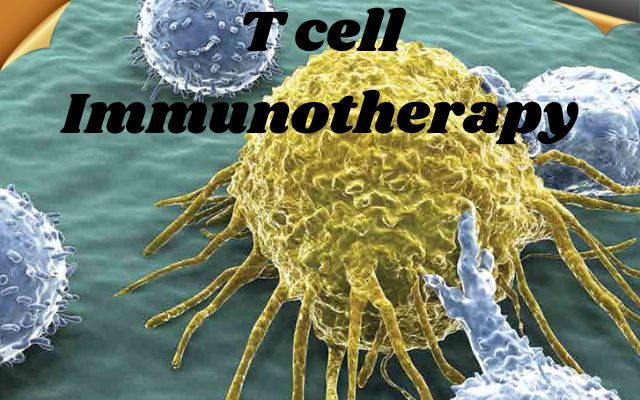T cell Immunotherapy- Novel Research Report

T cell immunotherapy is an immunotherapy that improves the ability of your own immune cells to fight cancer.
According to a new study, two persons with leukaemia were able to achieve remission after being infused with CAR-T cells, which are immune cells that have been genetically modified in the lab.
The findings show that this method could be used as a long-term treatment for leukemia, with some researchers even suggesting that it could be a cure.
According to the researchers, who reported their findings in a news event this week, chimeric antigen receptor or CAR T cell immunotherapy could be a “curative regimen” for chronic lymphocytic leukemia. About a quarter of new cases of leukemia are chronic lymphocytic leukemia.
Dr. Carl June, a cancer immunologist at the University of Pennsylvania and one of the study’s authors, said at the briefing that the new paper describes “a 10-year follow up of the first patients we treated with CAR T-cell immunotherapy, chimeric antigen receptor modified T cells,” which is the “first cell therapy made from the patient’s own immune system.”
“We can now infer that CAR T cell immunotherapy can genuinely cure patients with leukemia,” June added, citing the study’s findings.
T Cell Immunotherapy
CAR T cell immunotherapy is an immunotherapy treatment for leukemia that uses the body’s own immune system to target the cancer cells. The treatment involves sending a patient’s immune cells to a lab where they are genetically engineered with a virus and given the ability to locate and kill the cancer’s source.
Sustained Remission
The patients went through two separate phases, according to the new study, which was published in the journal Nature on Wednesday.
They went through an early period in which CD8+ or CD4CD8 CAR T cell immunotherapy expressed the Helios marker, followed by a transition into a long-term remission phase dominated by the CD4+ CAR T cell immunotherapy population.
The researchers said, “CAR T cell immunotherapy remained detectable more than ten years following infusion, with maintained remission in both patients.”
The researchers evaluated the long-lasting T cells in two persons with leukemia who were in complete remission in 2010 after receiving the cells as part of a Phase 1 clinical trial. The two have been in remission for more than ten years, according to the researchers.
Dr. David Porter, an author of the study, stated that while this sort of immunotherapy can have major adverse effects, it has become safer over time and is now administered to hundreds of thousands of people each year.
Side Effects Of T Cell Immunotherapy
Tumor lysis syndrome, he explained, is “a condition where you destroy vast numbers of cancer cells all at once and they release their contents into the blood, which can make individuals pretty sick.” Tumor lysis syndrome can result in electrolyte imbalances and renal impairment.
Another side effect is cytokine release syndrome, which causes high fevers, nausea, vomiting, and muscular and joint discomfort in patients.
Read Also-
“It can progress to dangerously low blood pressure, breathing difficulties, and fluid leakage into the lungs,” Porter warned.
A neurologic toxicity is the third main adverse effect, which causes difficulties speaking or thinking effectively. According to Porter, people can become comatose or have seizures in specific conditions, but the majority of cases resolve on their own.
A ‘Deeper Understanding’
June enlisted Dr. Joseph Melenhorst to set up a laboratory to study persons who had been treated with CAR T cell immunotherapy for the new study.
“We’ve actually developed a pipeline and a greater understanding of the biology of the cells that were injected,” said Melenhorst of the University of Pennsylvania, one of the new paper’s authors, in a press conference on Tuesday.
“With new technology, we were able to separate and examine cells, and it gave us a lot of insight into some of the mechanisms of persistence and tumor response in both people.”
Doug Olson was one of the patients that was followed for a decade. When he was 49, he was diagnosed with chronic lymphocytic leukemia.
“Even though hearing I had cancer was terrible, I didn’t need much therapy for around six years,” Olson said at the briefing.
Then “chemo got me in remission for another five years, and then things started to go downhill pretty quickly after that, and by 2010, about 50 percent of my bone marrow was CLL,” Olson said, making reference to lymphocytic leukemia, a type of cancer that begins in the bone marrow and is caused by white blood cells.
Olson said he received his first CAR T cell immunotherapy infusion in September 2010 and felt unwell for about three days before his physician told him that no cancer cells had been identified in his body the next week.
“Back in 2010, we didn’t expect this would be a curative therapy at all,” June added.
“But the reason I believe we can now declare this is a cure for Doug — from a scientific standpoint — is that they are the most mature, the oldest results available in the scientific literature, since they were the first treated,” he said. “At this moment, ten years later, we haven’t found any leukemia cells, and we still have leukemia.”
Conclusion
CAR T cells were detectable more than 10 years after infusion, and both patients experienced long-term remission. In both individuals, a highly active CD4+ population formed, which eventually surpassed the CAR T cell immunotherapy population at subsequent time points. The clonal make-up of CAR T cells stabilized during this transition, with a repertoire dominated by a small number of clones.
People May Ask
Who Is Eligible For T Cell Therapy?
B-cell precursor acute lymphoblastic leukemia (ALL) in people under the age of 25 is one of the FDA-approved indications for CAR-T cell treatment. Diffuse large B-cell lymphoma (DLBCL) is a kind of lymphoma that affects the (DLBCL) Primary large B-cell lymphoma of the mediastinum.
What Cancers Does T Cell Therapy Treat?
Diffuse large B-cell lymphoma (DLBCL), follicular lymphoma, mantle cell lymphoma, multiple myeloma, and B-cell acute lymphoblastic leukemia (ALL) in pediatric and young adult patients up to the age of 25 are now treated using CAR T-cell therapy.
What Is The Success Rate Of CAR T-Cell Therapy?
The cancer hasn’t reappeared since then, which was in 2016. According to Michael Bishop, MD, director of UChicago Medicine’s cellular therapy department, the CAR T-cell therapy success rate is around 30% to 40% for long-term remission with no additional treatment.
What Is T Cell Immunity For Cancer?
Any new substance that the immune system does not identify sets up an alarm, prompting the immune system to launch an attack. Chimeric antigen receptor (CAR) T-cell therapy is a method of modifying immune cells called T cells (a kind of white blood cell) in the lab so that they can detect and destroy cancer cells.



